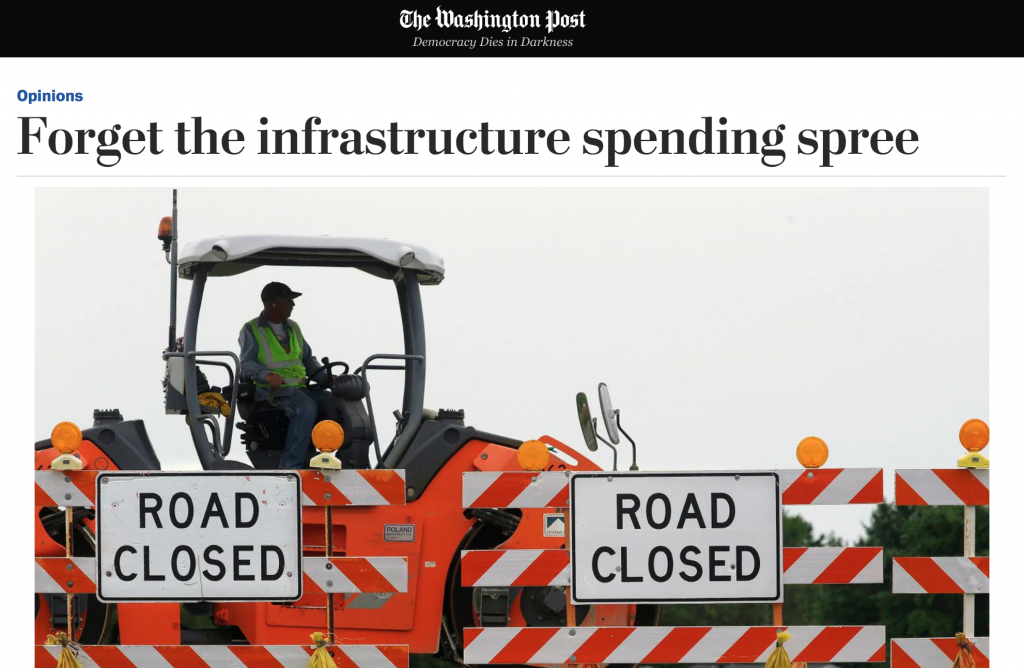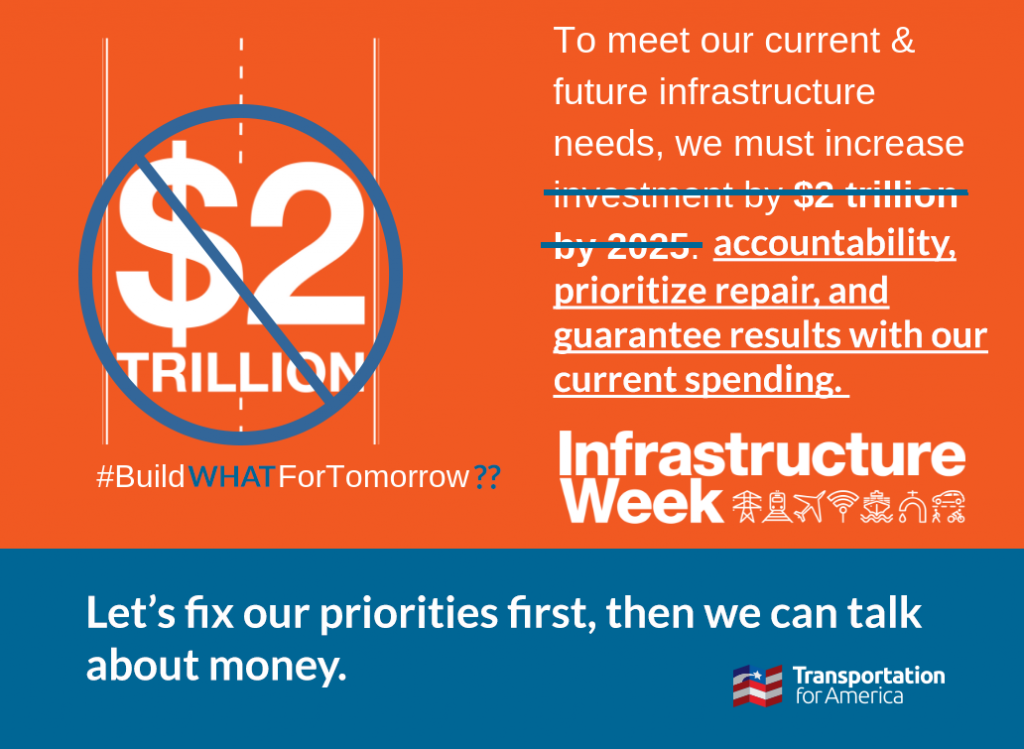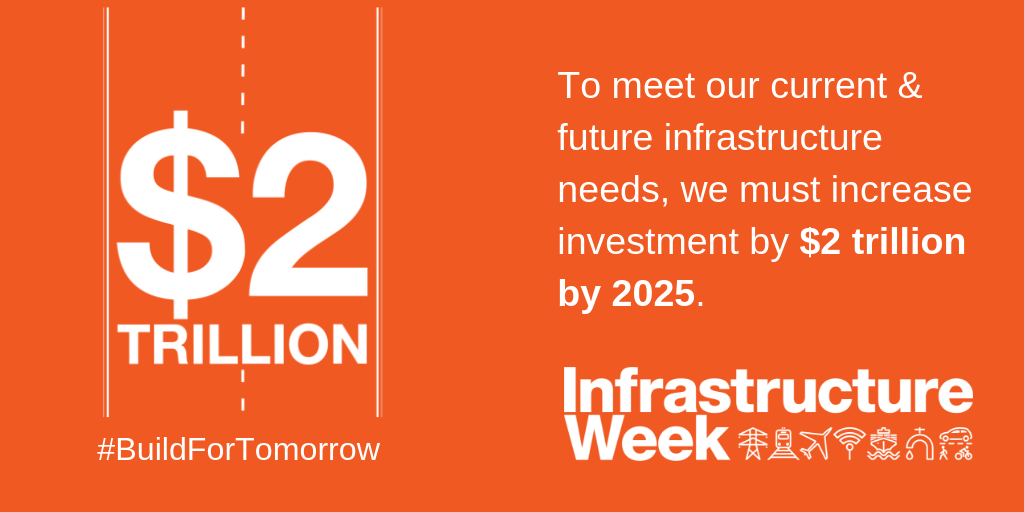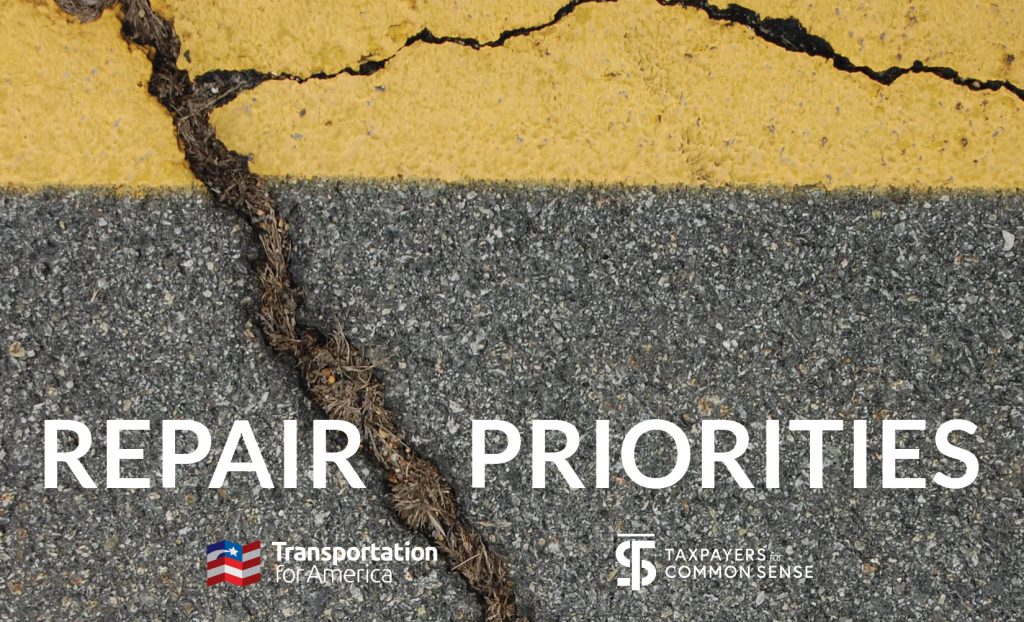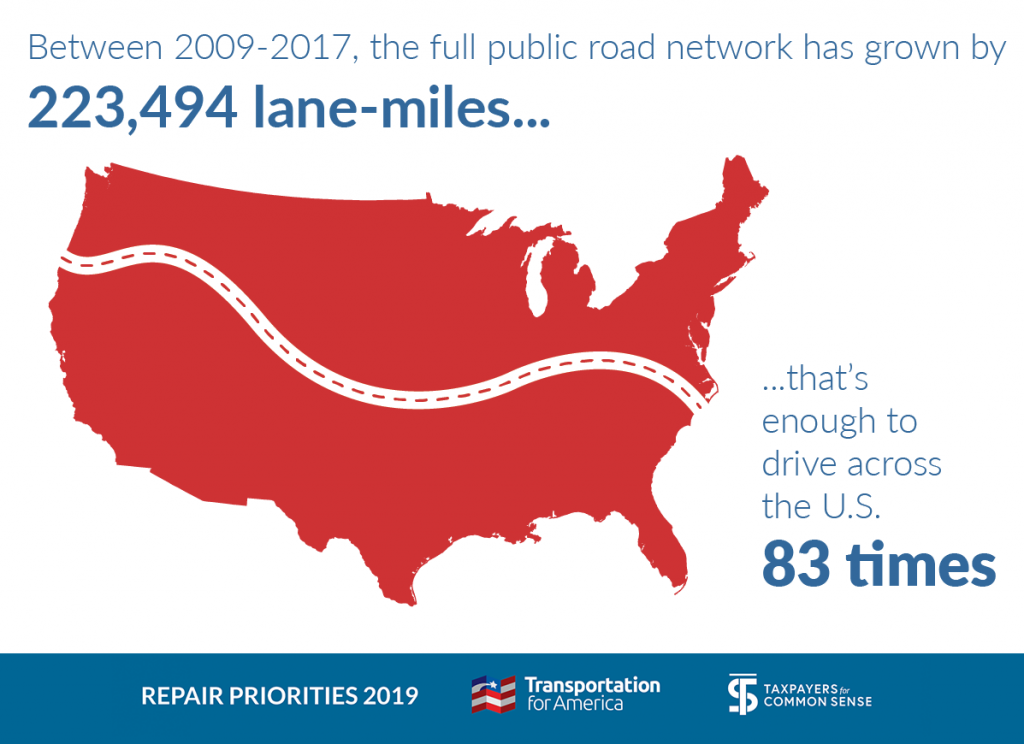
After the release of Repair Priorities 2019, we hosted a webinar in partnership with Taxpayers for Common Sense to talk about the findings and recommendations of our new report. During the webinar we heard from our own Director of Transportation for America, Beth Osborne, and Steve Ellis, Executive Vice President of Taxpayers for Common Sense, about why we need reevaluate our federal transportation policy (which governs how we spend money) before dumping more money into the same broken system.
We were also joined by two speakers from state DOTs working to prioritize repair with available funding. Jack Moran, Deputy Chief of Performance and Asset Management for the Massachusetts DOT, talked through the nitty-gritty of how MassDOT has set up a state transportation program that puts repair needs first and demonstrates accountability to the public. Dick Hall, Chairman of the Mississippi Transportation Commission, spoke about why and how Mississippi DOT has made a recent dramatic shift away from road expansion toward repair, including making a difficult decision to halt expansion projects already in the pipeline.
Watch the recorded webinar below and download your copy of Repair Priorities 2019.
Other related resources:
Forget the infrastructure plan — we don’t need it.
In a pointed opinion piece published by the Washington Post, Transportation for America Director Beth Osborne made the case for focusing on federal policy reform instead of a one-time infusion of more funding into a yet-to-be-defined infrastructure plan.
How to build a better state DOT
Smart Growth America took a long look at how current practices and policies at state departments of transportation (DOTs) lead to the construction of huge, expensive road projects (i.e. highways) as a ‘solution’ to almost every transportation problem and how they can do better. Governing Magazine also published a piece on the work with state DOTs that includes interviews with Beth Osborne and Washington State DOT Secretary Roger Millar.




